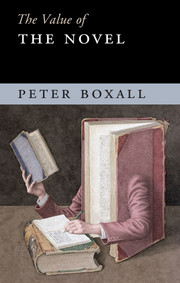5 - The Novel, Justice and the Law
from Part II - Matter
Published online by Cambridge University Press: 05 September 2015
Summary
While ignorance and poverty persist on earth, books such as this cannot fail to be of value.
Victor Hugo, Les MisérablesIn the final analysis literature, by its very activity, denies the substance of what it represents. That is its law and its truth.
Maurice Blanchot, The Work of FireThis law is, of course, at present unknown to us.
Fyodor Dostoyevsky, Crime and PunishmentIf the novel places imaginary bodies in imaginary space and imaginary time, then it also offers imaginary depictions of the laws that operate upon such bodies, the rules by which bodies share space and time with each other. It is perhaps the central, driving desire of the novel to picture worlds which operate according to established rules, in order to gain some understanding of the principles that govern such rules. As Ian McEwan has recently put it, fiction and the law are ‘rooted in the same ground’; both seek to give accounts of the complicated, diverse ways in which people seek to co-exist, and both apply abstract notions of ‘justice’ to such interactions. From the appearance of Thomas More's Utopia in 1516 – a work which can be considered a prototype of the novel form that developed more fully in the early eighteenth century – the practice of writing fiction has emerged in tandem with the attempt to offer pictures of better worlds, fairer laws, and forms of good governance. Across the centuries of the modern novel's development – from the enlightenment classics of Swift, Voltaire and Wollstonecraft, to the great nineteenth-century works of crime and punishment by Dostoyevsky, Victor Hugo, Charles Dickens and Alexandre Dumas, to the crime and detective novels of Conan Doyle, Edgar Allen Poe and Agatha Christie, to twentieth-century explorations of crime and justice from Thomas Pynchon to Jonathan Littell to Roberto Bolaño – fiction has developed an intricate relationship with legal processes.
Now, one way to think about this relationship between fiction and the law, in the context of a consideration of the value of the novel, is to propose that fiction itself works to shape legal thinking, that it has a kind of responsibility to bring a better, more just world into being.
- Type
- Chapter
- Information
- The Value of the Novel , pp. 116 - 137Publisher: Cambridge University PressPrint publication year: 2015



